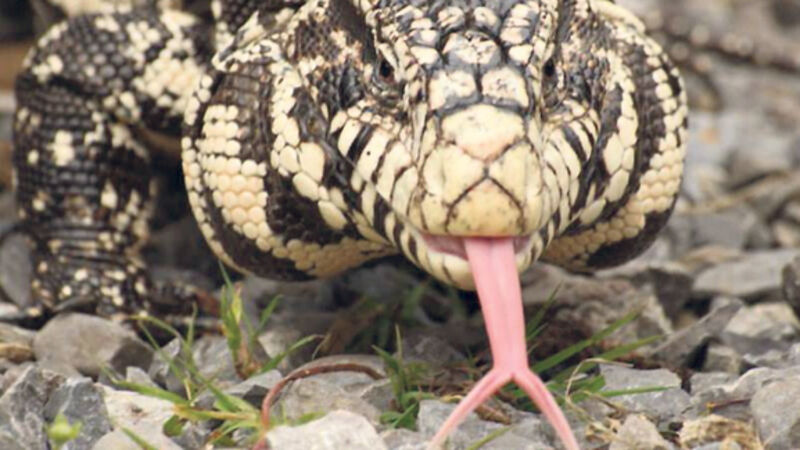Safe home for wild and exotic animals

Bad for the animal involved, bad for us through transmission of diseases, bites etc and potentially bad for the environment that the animal was removed from, and bad for our own environment if an exotic animal escapes and naturalises.
The National Exotic Animal Sanctuary (NEAS) were called to an abandoned house in Carlow recently where someone had moved out, leaving some 100 lethal spiders and scorpions behind them.
Domesticated animals like dogs, cats and horses don’t do well without people. But conversely, wild and exotic animals don’t do well with people who cannot possibly meet their needs.
Exotic animals are, by definition, not domesticated and their behaviour can be unpredictable as they grow, become sexually active or simply yearn for the companionship and surroundings that are natural to their kind. Exotic animals rarely bond with their owners and may bite, scratch or sting to show their discomfort or unhappiness.
Most people who buy exotic animals as pets have little or no idea of what they are getting into. If they decide to surrender their pet, they will find that most shelters aren’t equipped to handle them, reputable zoos won’t take them and dealers certainly won’t want them back.
Just recently, a male racoon, native to North America, escaped from its enclosure and was captured in a County Dublin garden. Animal protection officers said the racoon was hungry and threatening a small dog. Racoons are one species that have the potential to become invasive in this country if they escape or are released into the natural environment.
In August, this paper reported on two baby racoons that were rescued by the Irish Wildlife Sanctuary who took them in, at just three weeks old.
Heather Wall, co-founder of the Sanctuary said that the allure of owning an exotic pet was best resisted.
A brief survey of popular websites reveals African Pygmy Hedgehogs, emus, sugar gliders, meerkats and kune kune piglet’s racoons geckos all for sale to anyone with the readies.
Like many animal welfare groups, the DSPCA warn that Ireland cannot continue to have exotic animals bought and sold like this without any form of licence.
NEAS is working hard to provide a haven for the growing number of unwanted and neglected exotic animals needing permanent support and specialised accommodation.
These animals have included lizards, turtles, snakes, marmoset monkeys, wolves and most recently, lethal spiders, also injured native birds and mammals. I spoke to co-founder Kevin Cunningham about their work.
I’ve worked with animals since I was a teenager, volunteering in rescue establishments with dogs and cats and then later, I worked in a rescue centre in Dublin and a parrot breeding farm. I did a lot of reading and self-study and over the years, I became involved with a like-minded group of people and gradually made a name for myself with the more exotic species. And it was about this time that my phone started to ring, sometimes at two in the morning with calls from people who were in trouble with an exotic pet. My colleague Yvonne Smalley and I decided that without proper legislation, things weren’t going to get any better so about five and a half years ago, we just took the plunge and decided to found NEAS. We have 40 years of experience between us.
Oh yes. Ten minuets after we moved in, the calls started and as soon as we got the electricity connected to the reptile houses we started to take in lizards. Because I have a special love for horses at the moment, we’ve got 34, some fine animals that have been abandoned or are cruelty cases. But with the exotics. people wanted a trendy pet, like a bearded dragon. But then when other people got them, they wanted something more exotic, bigger. Now some sites sell monkeys with diapers, clothes and food for them too. Once, we came across a marmoset monkey that was kept in a box bedroom for years and had never seen the light of day.
Yes and they might be the same people who sell to circus’s — animals such as big cats, bears. One guy we know of was driving around with a crocodile in the boot of his car. There was an ad on a site for someone in Louth who was selling a breeding pair of dingoes, who, although they can be dangerous, are classed as dogs here. There are no guidelines and no legislation.
Yes because these creatures are more readily available now online. But this is hardly a new problem. In 1994 a Limerick man was convicted of cruelty to three tigers, a bear and baboons that he was keeping. The ISPCA made a video and tried to get legislation introduced then. But nothing happened and I don’t think it will until someone gets killed.
Fundraising is harder and our overheads are high. The kind of random donations that we used toget have almost disappeared. One hundred per cent of the money we raise goes into the Sanctuary and we operate entirely with the help of some brilliant volunteers. We have built the place up with a lot of donations and by recycling things like old porta-cabins that were used as classrooms. Irish Fencing recently donated fencing for the racoons and it’s with help like this that we are able to survive. But without proper legislation, the situation is just not going to get any better.









